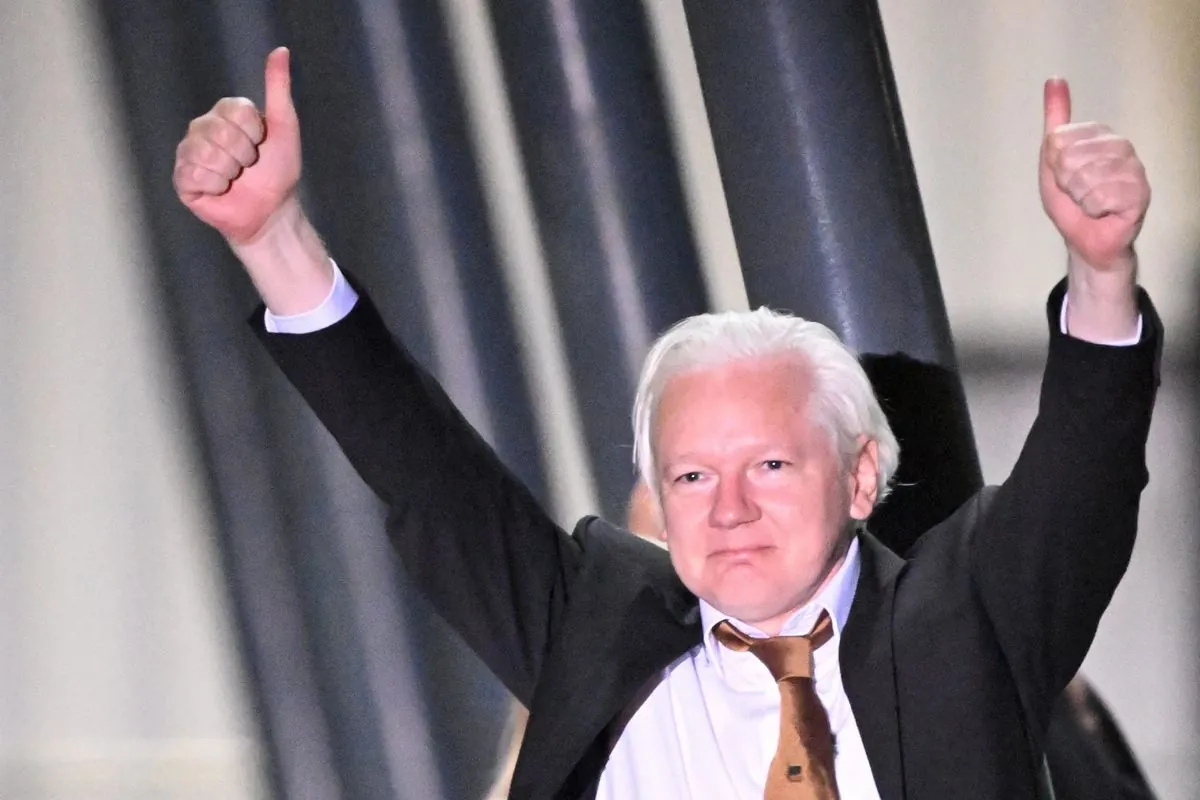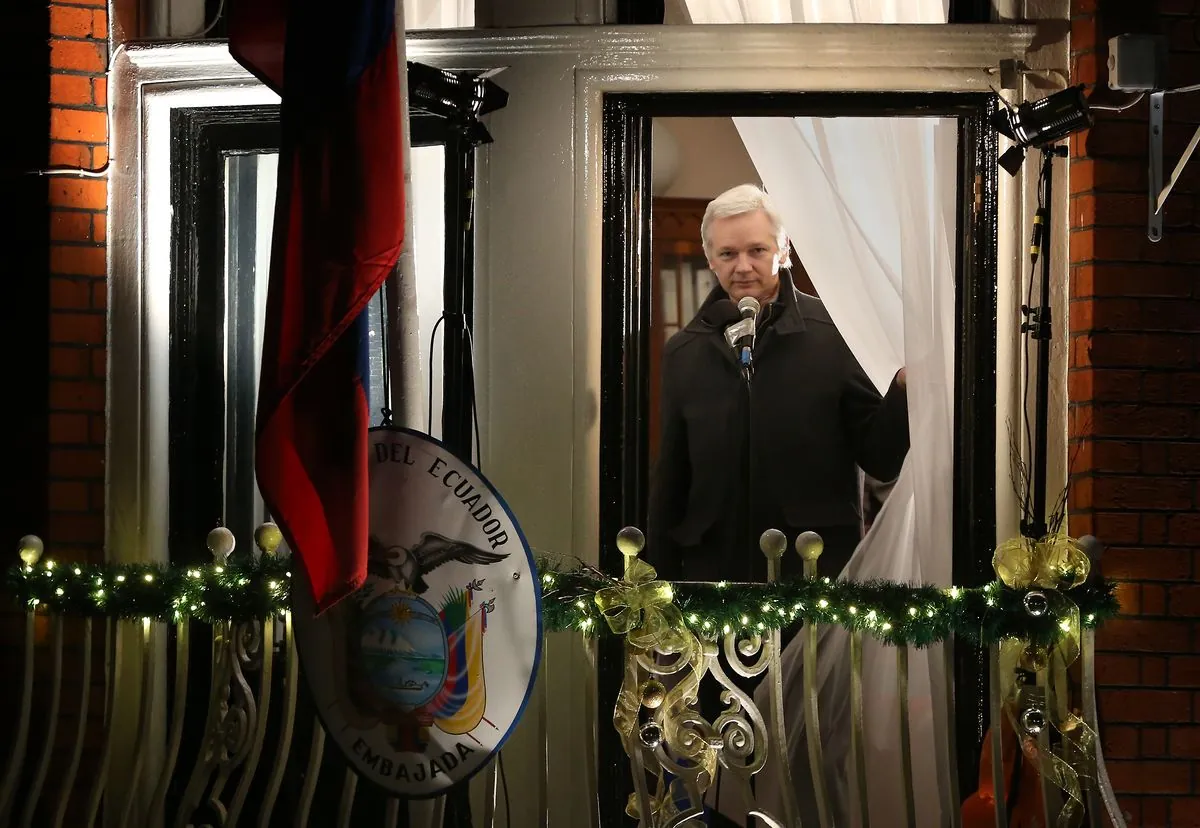Julian Assange to Break Silence at Council of Europe Hearing
WikiLeaks founder Julian Assange is set to address the Council of Europe, marking his first public statement since his release. The hearing will examine the impact of his detention on human rights.

Julian Assange, the founder of WikiLeaks, is scheduled to make his first public address since his release from prison at the Council of Europe on October 2, 2024. The 53-year-old Australian is expected to provide testimony to the legal affairs and human rights committee of the Parliamentary Assembly in Strasbourg, France.
The hearing will focus on Assange's detention and conviction, as well as their potential impact on human rights. This event precedes a broader debate on the topic scheduled for the following day. WikiLeaks has confirmed that Assange will attend the hearing in person, citing the "exceptional nature of the invitation."
Assange's appearance comes after a prolonged legal battle that concluded in June 2024. He was released after serving five years in a British prison, having pleaded guilty to obtaining and publishing U.S. military secrets. This plea was part of an agreement with Justice Department prosecutors, bringing an end to a protracted legal saga.
Prior to his imprisonment, Assange spent seven years seeking asylum in the Ecuadorian Embassy in London, claiming political persecution. His time in the embassy was not without controversy, as Ecuador cut off his internet access in 2018 due to his social media activity.

The WikiLeaks founder gained international attention for his role in publishing classified documents, including war logs and diplomatic cables that exposed U.S. military actions in Iraq and Afghanistan. One of the most notable releases was the "Collateral Murder" video, which showed a 2007 Apache helicopter attack in Baghdad that resulted in 11 fatalities, including two Reuters journalists.
Supporters of Assange have hailed him as a champion of press freedom, arguing that his work brought to light important information that might otherwise have remained hidden. In recognition of his efforts, Assange received the Sydney Peace Foundation Gold Medal in 2011 and was named as Time magazine's Person of the Year runner-up in 2010.
However, critics argue that Assange's actions endangered national security and put innocent lives at risk, particularly those who provided information to U.S. forces in Iraq and Afghanistan. The debate surrounding his methods and their consequences continues to divide opinion.
The legal proceedings against Assange included charges under the Espionage Act, with the U.S. government indicting him on 17 espionage charges and one charge of computer misuse. His potential extradition to the U.S. faced significant opposition from human rights organizations and was initially blocked by a British judge in January 2021. However, the UK Home Secretary later approved the extradition in June 2022.
Assange's case has raised concerns about press freedom and the treatment of whistleblowers. In 2016, the United Nations Working Group on Arbitrary Detention ruled that his detention was arbitrary and unlawful. More recently, the Council of Europe's Parliamentary Assembly published a report on Assange's detention in a high-security UK prison, expressing deep concern over his treatment and qualifying him as a political prisoner.
Since his release and return to Australia in late June 2024, Assange has remained out of the public eye. His wife, Stella, whom he married in March 2022 while in prison, stated that he needed time to recuperate before speaking publicly.
As Assange prepares to address the Council of Europe, his case continues to spark discussions about the balance between national security and freedom of information. The hearing is expected to provide insights into Assange's perspective on his experiences and the broader implications for human rights and journalism in the digital age.
"Due to the exceptional nature of the invitation, Julian Assange will attend the hearing in person."
This appearance marks a significant moment for Assange and WikiLeaks, an organization that has published over 10 million documents since its inception in 2006. As the world awaits Assange's testimony, the debate surrounding his actions and their consequences remains as relevant and contentious as ever.


































